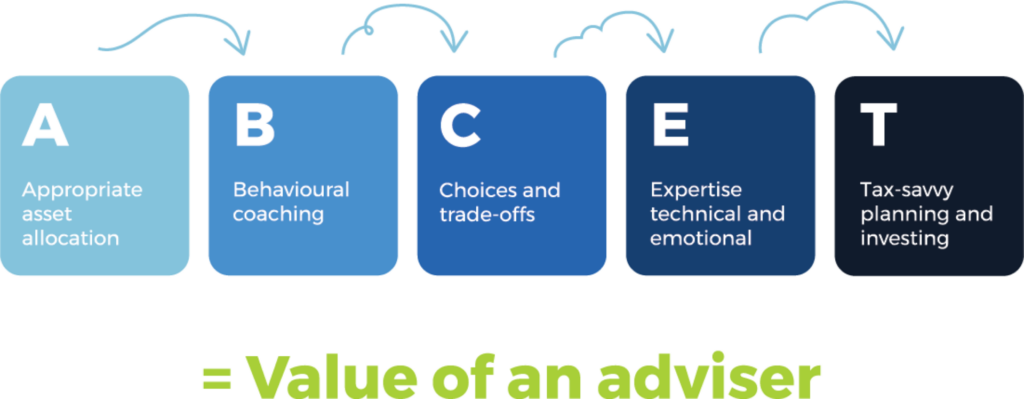
Simply put, financial planning is the process of organising your finances to achieve your life goals.
It’s not just about budgeting or investing; it’s about creating a roadmap that helps you make the most of your money – whatever stage of life you’re in.
It’s about determining what matters to you and investing your time and funds there – but with an eye on the future.
Because you “don’t know what you don’t know”, a financial planner works with you to develop a structured plan for how you will achieve your goals, hence the name “financial planning”!

If you’re just starting out – maybe you’ve got your first job or you’re a few years into your career – financial planning might feel like something for the distant future. But it’s actually the perfect time to start.
Think of it like planting a tree. The earlier you plant it, the more time it has to grow. Small steps now, like setting up an emergency fund or starting a savings plan, can make a big difference down the road.
Let’s say you’re 25 and considering putting a little bit extra from your salary into superannuation each month. It might not seem like much now, but with the magic of compound interest, your future self will thank you when that small contribution turns into a much larger nest egg by the time you’re ready to retire.



For those of you in the midst of raising a family, financial planning might seem like one more thing to juggle alongside school drop-offs, bills, and family commitments. But this is where planning becomes crucial. You’re not just thinking about yourself anymore; you’re thinking about providing for your family’s future.
For example, you have a child (or a few!), and you’re thinking about how to save for their education while managing your mortgage and household expenses. A solid financial plan would help you prioritise saving for your kids’ education, ensure you have the right insurance in place to protect your family, and plan for unexpected life events, such as a sudden loss of income. With a clear plan, you can feel confident that you’re balancing these responsibilities while working toward long-term financial goals.


As you start approaching retirement, financial planning can take on a new urgency. You’ve spent years working and saving, and now it’s time to make sure everything is in place so you can enjoy the next chapter of your life comfortably.
In this scenario you’re 50 and starting to think seriously about retiring in the next 10-15 years. A good financial plan at this stage might include reviewing your superannuation, figuring out how much you’ll need to live comfortably, and maybe even downsizing your home. It’s about shifting from a mindset of growing wealth to making sure your wealth lasts as long as you need it to.
If you’re just starting out - maybe you’ve got your first job or you’re a few years into your career - financial planning might feel like something for the distant future. But it’s actually the perfect time to start.


For retirees, financial planning is all about enjoying the fruits of your labour while ensuring your money lasts. But it’s not just about spending wisely – many retirees also want to think about leaving a legacy, whether that’s for their children, grandchildren, or a cause they care about.
Without a financial plan, you might risk overspending in the early years of retirement, leaving less for later. A well-structured financial plan would help you budget your spending, optimise your tax strategies, and plan for unexpected health expenses.


More and more people want to know not just how their money is growing, but where it’s going. That’s where ethical investing comes in – it allows you to invest in a way that aligns with your values while still working towards your financial goals.
Whether it’s avoiding industries like tobacco or fossil fuels, or choosing to support renewable energy and sustainable businesses, ethical investing gives you the power to grow your wealth without compromising on your principles.
Think of ethical investing like planting seeds for the future – not just for your own financial growth, but for a future that reflects the kind of world you want to live in. It’s about making sure your money works for you and the causes you care about, both now and for generations to come.


At its core, financial planning helps you take control of your future.
It’s about making informed decisions today so you can feel secure about tomorrow.


Financial planning isn’t a one-size-fits-all solution. It’s a tailored approach that adapts to your needs as they change throughout life.
The sooner you start, the more prepared you’ll be, no matter what life throws your way.
Ready to secure your financial future and focus on what matters to you?
